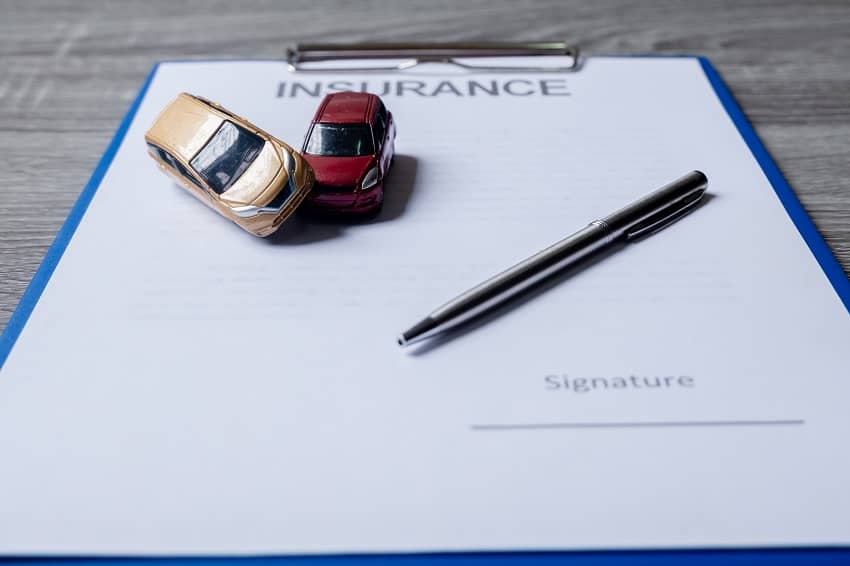Car insurance comes in different types, including liability, collision, comprehensive, uninsured/underinsured motorist, personal injury protection, and medical payments coverage. Each type provides specific coverage for different scenarios.
Car insurance is mandatory in almost every state in the us, and for a good reason. Accidents can happen at any time and can be costly to fix. Having the right car insurance coverage ensures that you are sufficiently protected from unexpected expenses that can arise in the event of an accident.
Car insurance policies come in different types, each offering coverage for specific situations. In this article, we will discuss the various types of car insurance policies and help you understand which one is right for you. So, let’s dive into it.
Table of Contents
Mandatory Insurance Coverage
Whether you own a luxury car or a basic model vehicle, it’s vital to get auto insurance coverage. Car insurance offers protection against financial loss in case of damage to your vehicle or injury to you and others during an accident.
In most states, car insurance is mandatory, meaning you must buy a minimum amount of coverage independent of the car model you own. Here is a brief overview of the mandatory insurance coverage that you need to know:
Explanation Of Mandatory Car Insurance Coverage
Before getting into the details, it’s essential to understand that auto insurance obligations vary between states. Some states mandate specific coverages or limit the amount of insurance that a driver can buy, while others do not mandate auto insurance but instead require a driver to demonstrate financial responsibility.
Here is what you need to know about mandatory car insurance coverage:
Liability Coverage
Liability auto insurance is a mandatory type of coverage that most us states require for every car owner. The coverage protects you from lawsuits and claims filed against you due to bodily injury or property damage that resulted from a car accident where you are found at fault.
Liability coverage typically includes two types of protection:
- Bodily injury liability coverage pays for expenses like hospital bills, medical treatment, lost wages, and legal fees for injuries or deaths you cause in an accident.
- Property damage liability coverage pays for the cost of repairing or replacing another person’s car or property that you damage while driving.
Uninsured Motorist Coverage
Uninsured motorist insurance is mandatory coverage that protects drivers from uninsured drivers. According to the insurance information institute, around 1 in 8 us drivers do not have auto insurance. The coverage kicks in when an uninsured driver hits you, and their liability coverage doesn’t pay for the damages and medical expenses.
Types of uninsured motorist coverage include:
- Uninsured motorist bodily injury coverage pays for medical expenses, lost wages, pain, and suffering caused by an accident where you’re not at fault, and the other driver has no insurance.
- Underinsured motorist bodily injury coverage fills in the gap if the other driver is at fault, but their insurance limits are insufficient to pay for your medical expenses and other costs.
Auto insurance is vital for every driver, not only because it’s mandatory, but also because it offers critical protection in case of a car accident. By understanding the different types of mandatory insurance coverage, you can choose the one that suits your needs and budget.
Optional Insurance Coverage
In addition to mandatory car insurance coverage, you might want to consider optional coverage to protect yourself from additional risks and liabilities. Let’s take a closer look at some of the most commonly available optional car insurance coverages.
Collision Coverage
Collision coverage pays for damages to your vehicle when it hits another object or flips over or hits a pothole. It is an optional coverage that can be valuable if your car is financed, leased, or newer and still has a high value.
This coverage may come with a deductible, which is an amount you pay before the insurance takes over.
Bullet points:
- Pays for damages to your vehicle due to a collision.
- Optional coverage that may come with a deductible.
- Can be beneficial for newer, financed, or leased cars.
Comprehensive Coverage
Comprehensive coverage pays for damages to your vehicle from things such as fire, theft, weather, or animals. It is an optional coverage that can be valuable if you want to cover additional risks beyond collision coverage. Like collision coverage, this coverage may come with a deductible.
Bullet points:
- Pays for damages to your vehicle from non-collision events.
- Optional coverage that may come with a deductible.
- Can cover risks beyond collision coverage.
Personal Injury Protection (Pip)
Personal injury protection (pip) pays for medical expenses and lost wages for you or your passengers in the event of an accident, regardless of who was at fault. This coverage is mandatory in some states and optional in others. It is a great option for those who do not have health insurance or want additional coverage for themselves and their passengers.
Bullet points:
- Pays for medical expenses and lost wages.
- Mandatory in some states, optional in others.
- Great option for those without health insurance or wanting additional coverage.
Medical Payments Coverage
Medical payments coverage pays for medical expenses for you or your passengers in the event of an accident, regardless of who was at fault. It is optional coverage that can be beneficial if you or your passengers do not have health insurance or want additional coverage.
Bullet points:
- Pays for medical expenses for you or your passengers.
- Optional coverage that can be beneficial.
- Great option for those without health insurance or wanting additional coverage.
By understanding the different types of optional insurance coverage available, you can make an informed decision about which optional coverage best suits your needs. Remember to consult with your insurance agent or broker for more information and help in choosing the right coverage for you.
How To Choose The Right Car Insurance
When choosing car insurance, it can be overwhelming to navigate through the various types available. To help you make the right decision, let’s explore the factors to consider when selecting car insurance, as well as a comparison of different types of car insurance.
Factors To Consider When Choosing Car Insurance
Before selecting a car insurance policy, there are a few factors you should consider:
- Coverage limits: This refers to the maximum amount the insurance company will pay out for a covered claim. Ensure that the policy covers damages to your car in case of an accident, as well as any liability you may have for injuring others or damaging their property.
- Deductibles: This refers to the amount you’ll pay out of pocket if you make a claim before your insurance coverage kicks in. A higher deductible will result in a lower premium, but it also means you’ll need to pay more upfront in case of an accident.
- Driving record: Your past driving history will significantly impact the cost of your insurance policy. Before deciding on a policy, ensure to understand how your past driving record will impact your insurance costs.
- Budget: It’s essential to select a policy that fits within your budget. Keep in mind that a low-cost policy with low coverage limits and high deductibles may not be the best option in the long term.
Comparison Of Different Types Of Car Insurance
It’s essential to know the different types of car insurance policies available, as they offer varying levels of protection and coverage. Here are the most common types:
- Liability coverage: This type of car insurance is an essential requirement in most states. It covers costs related to damage or injuries you cause to someone else in an accident. It doesn’t cover your car or your injuries.
- Collision coverage: This policy covers damage to your car due to a collision. It includes accidents with other cars and objects, such as trees or guardrails.
- Comprehensive coverage: This policy covers non-collision damages to your car, such as theft, natural disasters, or vandalism.
- Personal injury protection (pip): Some states require this coverage. It pays for medical expenses for you and your passengers regardless of who caused the accident.
- Uninsured/underinsured motorist coverage: It provides coverage if the other driver in an accident is not insured or doesn’t have enough coverage to pay for damages.
Selecting the right car insurance policy can be challenging, but analyzing your needs, budget, and driving history can help you make an informed decision. Consider the type of coverage you need, deductible, and budget before choosing a policy. Use this comparison of different types of car insurance as a guide to choose a policy that fits your requirements.
Frequently Asked Questions Of Different Types Of Car Insurance
What Are The Different Types Of Car Insurance Coverage?
Car insurance policies cover various aspects of driving, and there are several types of coverage available. These may include liability, collision, comprehensive, uninsured motorist, and personal injury protection coverage.
Why Is Liability Car Insurance Coverage Necessary?
Liability car insurance coverage is necessary because it covers the costs of damages you cause to another person’s property or injuries they sustain in an accident where you are at fault. It’s also a legal requirement in most states.
What Does Comprehensive Car Insurance Coverage Cover?
Comprehensive car insurance coverage protects your vehicle from non-collision damages, such as theft, vandalism, falling objects, or natural disasters. It usually covers the actual cash value of your car.
Is Personal Injury Protection Coverage Required By Law?
Personal injury protection (pip) coverage is not required by law in all states, but it is mandatory in some states. Pip helps cover medical expenses and lost wages if you or your passengers are injured in an accident, regardless of who is at fault.
What Is Uninsured Motorist Car Insurance Coverage?
Uninsured motorist car insurance coverage protects you if you’re in an accident caused by a driver who doesn’t have insurance coverage or doesn’t have enough coverage to pay for all the damages and injuries. This coverage can also apply to hit-and-run accidents.
Conclusion
Overall, car insurance is a necessary investment for any driver to protect themselves and their vehicle. The different types of car insurance available offer a range of coverage levels to meet various needs and budgets. Choosing the right type of car insurance involves considering factors such as the level of protection required, the value of the vehicle, and the driver’s budget.
Comprehensive insurance offers the most extensive coverage but may not be necessary for everyone, while liability insurance is mandatory in most states. Collision insurance provides additional protection for damage to your vehicle from collisions with other cars or objects. Understanding the different types of car insurance and their benefits can help drivers make informed decisions.
It is important to assess individual needs and seek out a reputable insurance company to find the right policy for each driver.




